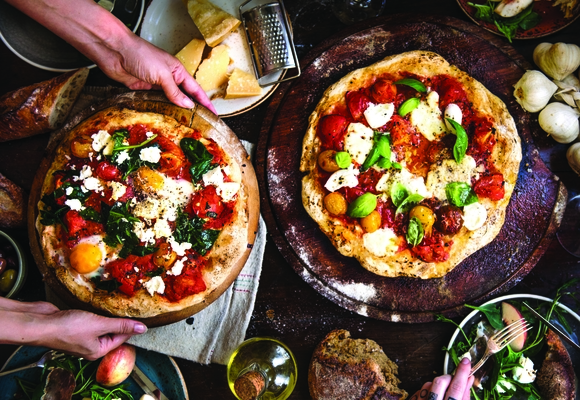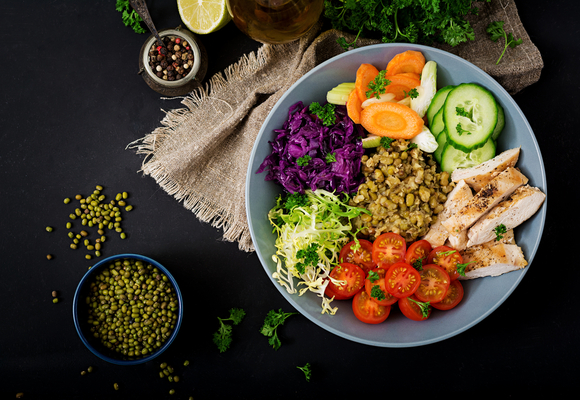Scientific research suggests that the most effective way to help diners make healthy, sustainable food choices is to shift our collective diets to primarily plant-based foods.
Growing plants for food generally has less of a negative impact on the environment than raising livestock, as livestock have to eat lots of plants to produce a smaller amount of food. No other decision in the profession — home kitchen or in the boardrooms of food service companies — can compare to advancing global environmental sustainability.
If we impact carbon emissions, we must increase the amount of vegetables and fruits we eat while decreasing the amount of animal products we consume. This isn't something new or novel; it's the food your grandparents and their grandparents ate. It's the food of all our histories.
Add into these flavours, styles and techniques from around the globe, and you have delicious, colourful and vibrant food that looks Instagram-worthy, tastes terrific, has fantastic nutritional values and helps to reduce carbon emissions of the food we love.
That's why we should celebrate cuisines that have evolved over millennia to have a superior balance of animal and plant foods. Foods that we know have experienced and bring forth memories. Foods that celebrate the cultures and flora of their home regions. Foods that adapt to the time and place you are in now. Traditional food cultures offer a myriad of flavours. To support innovation around healthy, delicious and crave-able cooking.
In the UK, we are blessed with many cultures fighting for space at our tables, from the diets of the Mediterranean to the cuisines of Asia, Latin America, Africa and the Bahamas. All bring vibrant colour, lip-smacking flavours and exotic aromas to our dull post-war, ration-blighted cooking.
Cooking t is inspired by this digest and is well-balanced, colourful, vibrant and delicious, and is a joy for me as a chef.
Take inspiration from around the world and apply those techniques and flavours to the food of modern Britain.
Be respectful of the traditions of others and your own culture. Be creative with all cultures' foods whilst respecting those cultures.
Claims of authenticity should be avoided. My mother would say my cooking of stovies is a far cry from real stovies(When she's being polite!)
Yet I grew up eating mountainous bowls of this hearty Scottish stew. So if I can't even lay claim to a simple dish like this from the country I was born and grew up in, I shouldn't be claiming an authentic Thai red curry on my menu.
Embrace the traditions and flavours of cuisines while remaining true to the time and place you live in.






